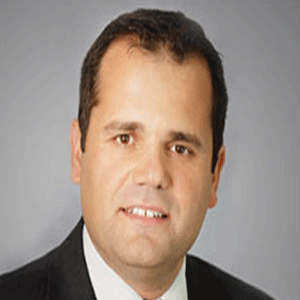THANK YOU FOR SUBSCRIBING

Miguel Louzan, VP-IT, UCB
The signs of the digital health explosion are all around us. It seems that every day we hear about a new concept being tried, a new mobile application or social media tool targeting patients, doctors and various other stakeholders. For smartphone users, there are some 97,000 mobile health apps available and that number will only continue to grow.
The challenge for those of us in the pharmaceutical and life science sphere is to sift through this digital noise. Today we’re able to engage with patients more directly than ever before to learn about their treatment needs. Meanwhile, the rise of Big Data holds enormous potential to help revolutionize healthcare and deliver more personalized solutions for patients. By creating a bridge between these two areas—patient engagement and analytics—we can help unearth the insights that will allow us to deliver better treatment experiences for patients and, ultimately, improve health outcomes.
Providing Personalized Solutions for Patients In recent years we’ve seen increased privacy protection laws passed (e.g. the Health Insurance Portability and Accountability Act, or HIPAA) to help protect patients’ personal health information from being improperly used. This has been coupled with a shift toward personalized medicine. Patients today want to become partners in their healthcare journey—they don’t just want personalized care, they expect it. Pharmaceutical companies must recognize this fact and be nimble enough to tailor patient care to an individual level, while still respecting HIPAA.
How do we do this? For starters, the rise of analytics and cognitive computing has given us new tools to uncover patient-level insights buried within Big Data. For example, at UCB we’ve partnered with IBM on a proof of concept project that seeks to apply Big Data analytics to help provide more personalized care for people with epilepsy, an incredibly complex chronic condition.
At the same time, the continued rise of social media, eHealth platforms and mobile apps continue to give us access to new sets of data that can help enhance the patient experience. At UCB, we’re working with the U.S. Department of Veterans Affairs’ Epilepsy Centers of Excellence on the Policy for Optimal Epilepsy Management (POEM) study, which uses the online health management platform PatientsLikeMe to show the potential of an online data-sharing network to positively influence self-management and self-efficacy for U.S. veterans with epilepsy. These digital platforms are the new gathering places for communities of patients and doctors. As we get o know our patients’ treatment needs on a deeper level, we can discover new ways to support patient communities and deliver more targeted solutions.
Increasing Efficiency in Drug Development As we get better at connecting with our patients and capturing this data, we also have the potential to unlock new insights into how our medicines are working. Say we were able to use mobile apps or eHealth tools to capture adherence data from a significant patient population. With that data, we can begin to analyze in more detail the ways patients are interacting with our drugs.
It’s easy to see the value of this data in the context of clinical trials. As healthcare costs around the world continue to rise, there is more pressure than ever to deliver efficiency across the industry. By better understanding patients and how they are interacting with and responding to treatments, we can be much more precise in the design of these trials. We can target specific patient populations or symptoms.
"Patients today want to become partners in their healthcare journey—they don’t just want personalized care, they expect it"
Challenges in Unlocking the Potential of Digital Health Considerable challenges remain, to truly channel the power of digital health to improve outcomes. This is the case both in terms of how pharma companies collect data and how they analyze it.
To the first end, we must remember that patients, like all of us, are consumers. Each has a different opinion about how—or if—they want to share their personal data. As technology opens up new portals to engagement, we can create interactions that can capture meaningful insights with minimal intrusiveness and effort on the patient’s end. We see this in other industries in the recent growth of wearable technology. Still, as pharma looks for ways to leverage these new innovations, we as an industry must be careful to preserve the bond of trust with patients by guarding their privacy and respecting privacy laws.
Then there’s the analytic aspect. On one hand, our industry has made great strides in this regard. Companies can reliably capture a specific data set, analyze it and use that information to target a patient behavior. But we must continue to develop the systems and solutions needed to connect the dots—to use Big Data to generate meaningful insights that can improve care within a larger population or disease state. This is the goal we’re working toward at UCB. Investing in these types of systems will enable us advance the potential of personalized medicine and ultimately help deliver more optimal outcomes for patients.













